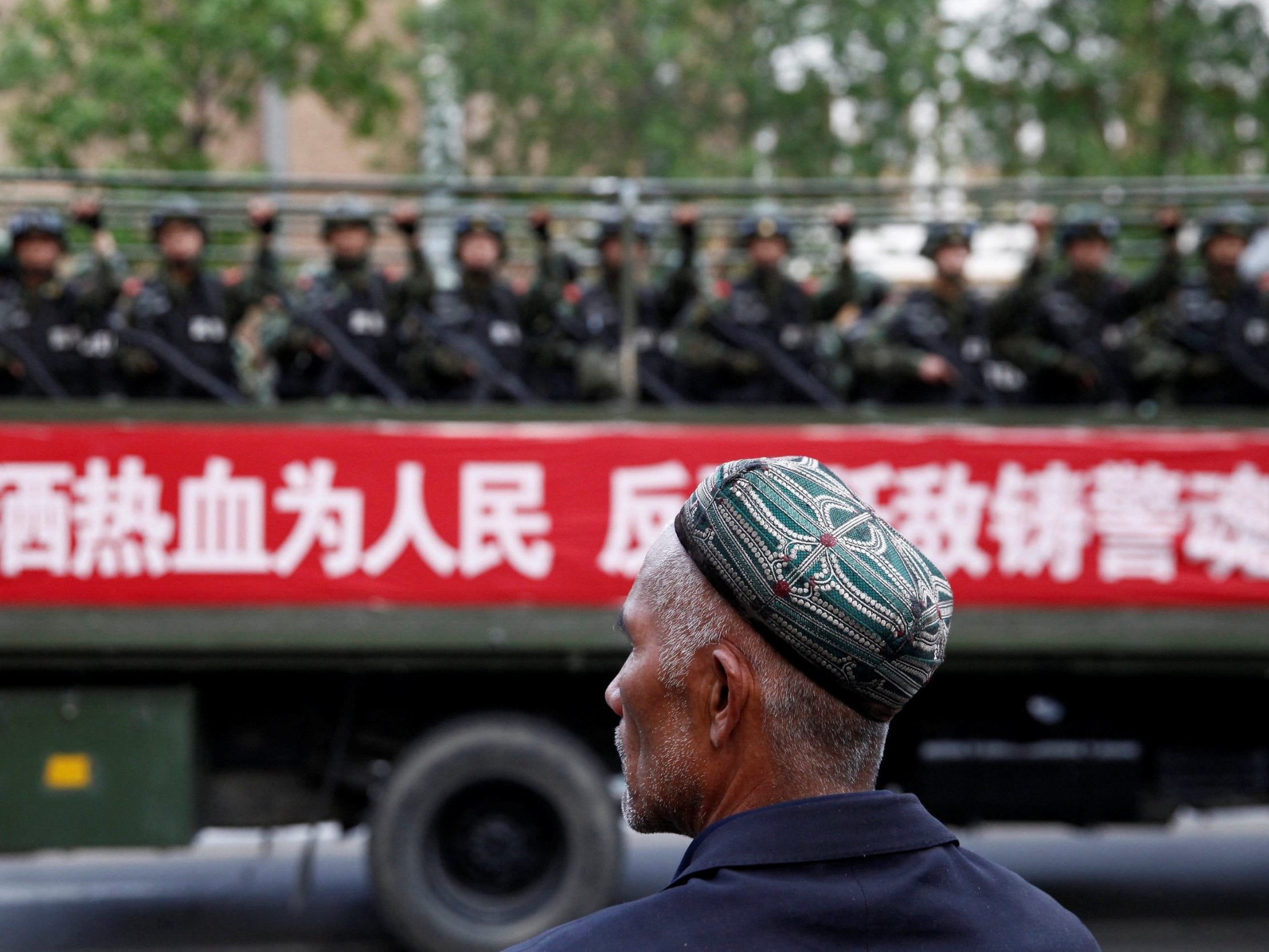China claims Uighur Muslims grateful to be held in internment camps as it makes their lives more 'colourful'
Amnesty International condemns state media report as 'insult' to up to one million detainees
China has claimed Uighur Muslims are grateful to be detained in mass internment camps which make their lives more “colourful”.
The ruling Communist Party depicted the re-education camps as an attempt to bring the largely Muslim minority into the “modern, civilised” world.
Up to one million Uighurs, Kazakhs and other minorities have been arbitrarily detained in interment camps in China’s far west Xinjiang region, a UN panel and human rights group have estimated.
A former inmate of one of the camps said Muslims were forced to denounce Islam and profess loyalty to the party, as well as being made to eat pork and drink alcohol, acts which are forbidden in their religion.
Reports of the mass detentions and strict surveillance of Muslims in China has prompted the United States to consider sanctions against officials and companies linked to allegations of human rights abuses.
Chinese officials initially issued blanket denials, but in recent weeks have defended the network of secret camps by saying they were not enforcing arbitrary detention and political re-education, but had instead sent some citizens who were guilty of minor offences to vocational centres to provide employment opportunities.
The governor of Xinjiang, Shohrat Zakir, who is also the most senior ethnic Uighur in Xinjiang, claimed the authorities were providing people with lessons on Mandarin, Chinese history and laws.
He said such training would steer them away from extremism and onto the path towards a “modern life” in which they would feel “confident about the future”.
“It’s become a general trend for them to expect and pursue a modern, civilised life,” Mr Zakir said, referring to the trainees in a report by the official Xinhua News Agency.
He said the measures were part of a broader policy to build a “foundation for completely solving the deeply-rooted problems” in the region.
The Turkic-speaking Uighurs have long resented the restrictions placed on their religious practices. They say they experience widespread discrimination in jobs and access to passports.
In the Xinhua report, Mr Zakir said authorities provided free vocational training in skills geared towards manufacturing, food and service industries.
Mr Zakir said “trainees” were paid a basic income during the training, in which free food and accommodations are provided.
He said the training centres were for people “who are influenced by terrorism and extremism, and those suspected of minor criminal offences” who could be exempted from criminal punishment.
The governor did not say how many people were in such courses, or whether such individuals were ever formally charged with a crime or provided a chance to defend themselves against the allegations.
The report also did not say if attendance was mandatory, though former detainees have said they were forcibly held in centres policed by armed guards.
Mr Zakir also seemed to try to counter reports of poor living conditions within the camps, saying “trainees” were immersed in athletic and cultural activities. He claimed the centres’ cafeterias provide “nutritious, free diets,” and dormitories were fully equipped with TVs, air conditioning and showers.
“Many trainees have said that they were previously affected by extremist thought and had never participated in such kinds of art and sports activities, and now they have realised that life can be so colourful,” he added.

Amnesty International called the report an insult to detainees and the families of those who had gone missing in the crackdown.
“No amount of spin can hide the fact that the Chinese authorities are undertaking a campaign of systematic repression in the Xinjiang Uighur Autonomous Region, with up to one million people arbitrarily detained,” said Patrick Poon, China researcher at Amnesty International.
“The mass internment camps are primarily places of punishment and torture, not learning.
“There are consistent reports of beatings, food deprivation and solitary confinement. This is having a devastating toll on the lives of up to one million people. It’s time the authorities come clean on what is really happening in the Xinjiang.”
Additional reporting by agencies
Join our commenting forum
Join thought-provoking conversations, follow other Independent readers and see their replies
Comments
Bookmark popover
Removed from bookmarks